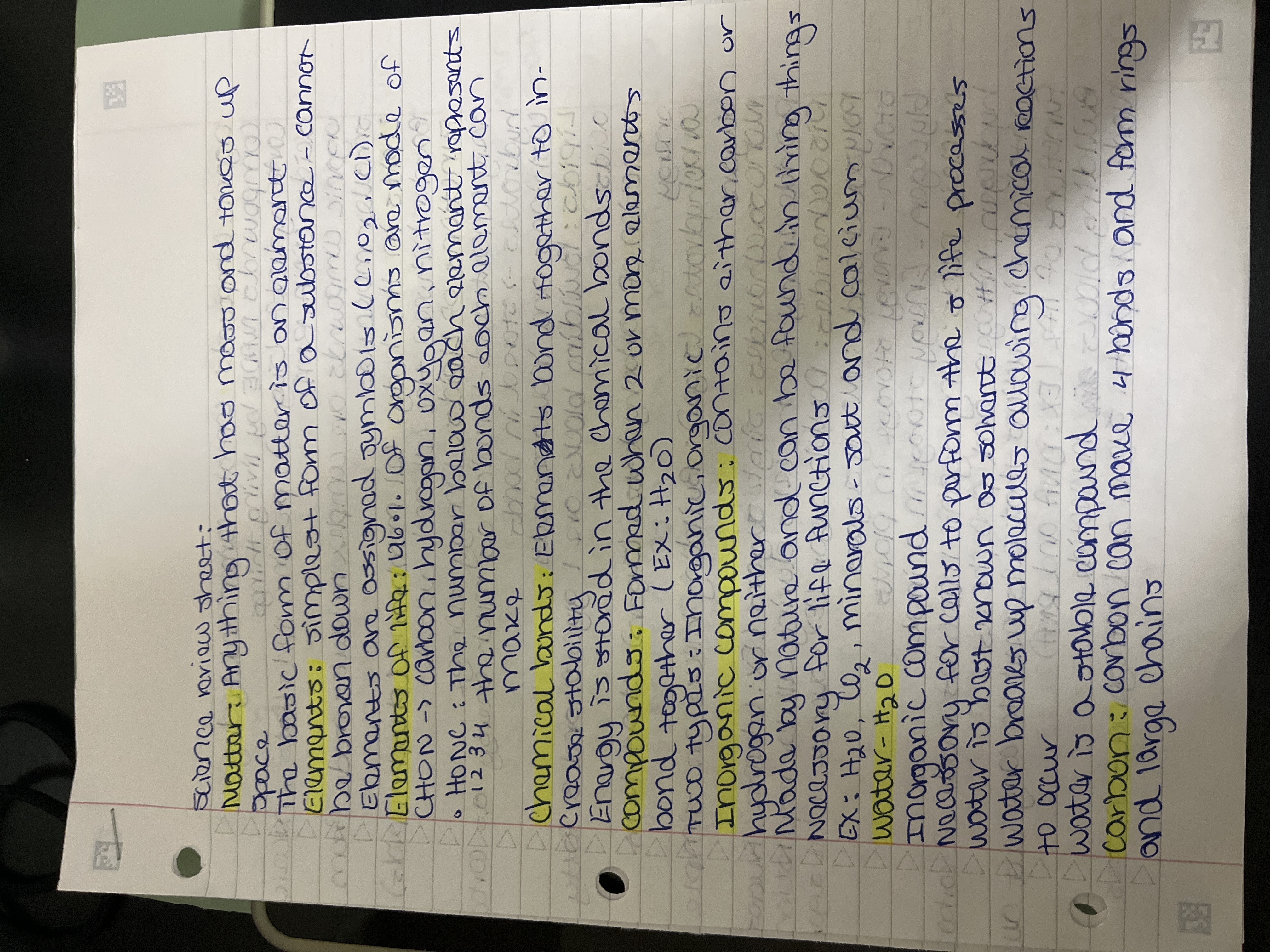What are the fundamental concepts of matter, elements, chemical bonds, and inorganic vs organic compounds in chemistry?

Understand the Problem
The question is asking for a review of key concepts related to matter, elements, chemical bonds, and compounds in science. This involves definitions and examples of different types of compounds, especially focusing on inorganic vs organic compounds, and the significance of water.
Answer
Matter has mass and space; elements are basic forms; bonds provide stability; organic compounds have carbon, inorganic often do not.
The fundamental concepts include that matter has mass and takes up space. Elements, as basic forms of matter, cannot be broken down further. Chemical bonds provide stability. Organic compounds contain carbon, whereas inorganic compounds do not. Carbon can form four bonds and create large chains.
Answer for screen readers
The fundamental concepts include that matter has mass and takes up space. Elements, as basic forms of matter, cannot be broken down further. Chemical bonds provide stability. Organic compounds contain carbon, whereas inorganic compounds do not. Carbon can form four bonds and create large chains.
More Information
Matter is everything with mass and volume. Elements are building blocks, and chemical bonds like covalent and ionic bonds create the foundation for molecular interactions. Organic chemistry focuses on carbon-containing compounds whereas inorganic covers non-carbon compounds.
Tips
A common mistake is confusing organic and inorganic compounds' definitions or misunderstanding the types of chemical bonds.
Sources
- Difference Between Organic and Inorganic Compounds - BYJU'S - byjus.com
- Chemical bonds | Chemistry of life | Biology (article) - Khan Academy - khanacademy.org
- 19. Classification of Matter (Elements, Compounds, Mixtures) - uen.pressbooks.pub
AI-generated content may contain errors. Please verify critical information